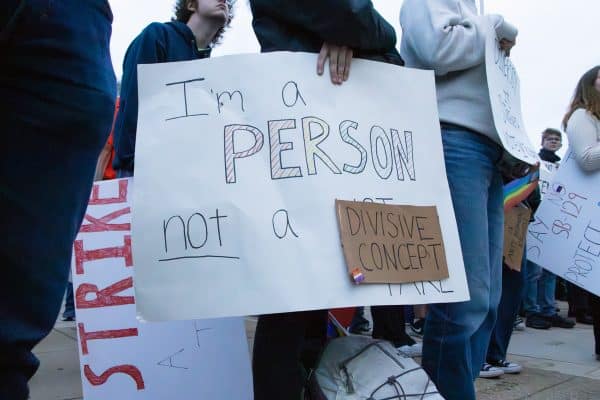Opinion | Sleep is not for the weak
It’s for everyone.
March 10, 2021
When trying to cultivate a healthy lifestyle, it’s hard not to listen to the repetitive calls for “mindful eating” and “ab workouts” from social media influencers. And while both mindful eating and working out can be exponentially helpful in boosting your health, you’re most likely still overlooking one simple, yet significant, feature of health: your nightly Zzz’s.
While it’s tempting to pull late nights to study or go out and then rely on the caffeine jolt of your morning coffee to get you through the next day, not getting enough sleep can be holding you back. Living off of your daily Starbucks is not sustainable. What you really need is your natural source of caffeine: sleep. For ages 18-24, the recommended sleeping time is 7-9 hours. While it can seem unrealistic to set aside enough hours for sleep in your busy college schedule, it’s important to consider what everything you could be losing when you lose a few hours of snoozing.
Depriving yourself of sleep can manifest a range of unhealthy mental health, diet and cognitive issues. The short term issues you experience after a night without enough sleep are issues that are especially counterproductive to have as a college student. Impairments to your memory retention, concentration and alertness can result from lack of sleep, but all of these are necessary cognitive functions you need to put to use to get by in your classes. Not getting enough sleep can mean you’re not getting the grades you want.
As mental health awareness has grown, it’s equally important to be aware that something as simple as a good night of rest can help alleviate symptoms of stress, anxiety and depression for some. Sleep is necessary to keep your central nervous system functioning, as neurons form in your brain to help process and send information you’ve experienced throughout your day. Sleep deprivation will negatively impact your mental and emotional states, causing mood swings and irritability. Continuing to pull all nighters can then cause symptoms more serious than just yawning.
Diet culture has been criticized for its tendency to make people underestimate the necessity of eating regularly. Sleep can be thought of the same way. Our society tends to place more value on productivity and success than getting the medically recommended eight hours of sleep a night. But, as we’ve seen with diet culture, society is not always right about what is best. Not getting sufficient sleep can cause you to feel lethargic, which makes you more hungry as your body seeks to fuel itself with calories instead of the sleep it needed. So while you might think staying up late to squeeze in an hour at the gym is a good idea, it’s actually better to hit the hay and call it a day so you can get some shut eye and wake up more refreshed to take on the next day. The gym will still be there tomorrow, but your tomorrow might not be as productive if you don’t get sleep now.
If reading all this has made you too overwhelmed to go to sleep, try these tips. Like any other aspect of a healthy lifestyle, consistency is key. Workout gurus emphasize that consistently going to the gym four to five times a week will show results, and, likewise, going to bed and waking up at a routine time will do the same. And you’ve heard it before, but I’m here to tell you again: Blue light is bad. Turn on your alarm, and turn off your phone. Spend at least an hour doing any other activity that does not involve a screen. This will keep you from aimlessly staring at the ceiling.
If you wake up in the middle of the night, don’t check the time. As soon as you check the time, your mind starts counting how long you’ve been asleep and how soon you have to get up. You’ll start thinking about the morning and all the things you have to do or people you’ll have to see, and this will keep you from going back to sleep.
Making such changes to your sleep schedule can seem daunting, but it’s a necessary aspect of a healthy routine. Sleep is not for the weak; it’s for everyone. And while college is often seen as the time to make the most out of every opportunity, it’s absolutely okay to take a step back and just snooze. You need sleep to be your best self.











